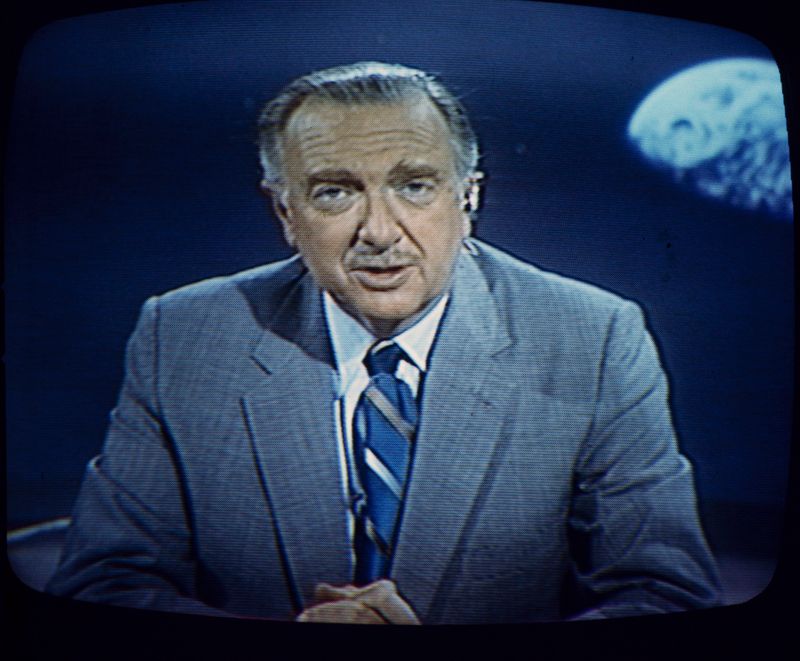Television has been a significant part of cultural history, often leaving a lasting impact through memorable quotes and catchphrases. These classic TV catchphrases have not only defined their respective shows but have also become embedded in popular culture, resonating with audiences across generations. From expressions of wisdom and humor to iconic one-liners, these phrases have transcended their original contexts to become part of everyday language.
1. Just one more thing…
Lieutenant Columbo, with his unassuming demeanor and disheveled appearance, often caught suspects off guard with his trademark line, “Just one more thing…” This phrase usually signaled the unraveling of a meticulously planned crime. Columbo’s idiosyncratic behavior and keen observation skills made viewers eagerly anticipate this moment.
The phrase became synonymous with unexpected twists and the detective’s quirky yet effective investigative style. Today, it’s used as a humorous prelude to raising an overlooked point or question. Columbo’s legacy lives on through this enduring catchphrase, reminding us of the power of curiosity and persistence.
2. Live long and prosper.
Spock’s iconic greeting, “Live long and prosper,” accompanied by the Vulcan salute, has become a universal symbol of goodwill and intellect. It captures the essence of Star Trek’s optimistic vision for the future, where logic and peace prevail.
The phrase’s simplicity and profound wish for longevity resonate with fans worldwide, transcending its sci-fi origins. As a staple of pop culture, it continues to inspire hope and unity. Whether among Trekkies or casual viewers, this phrase embodies the enduring appeal of Star Trek’s message of exploration and understanding.
3. Norm!
In the cozy setting of Cheers, every time Norm entered the bar, he was met with a unified shout of his name, “Norm!” This simple yet powerful greeting highlighted the show’s theme of belonging and friendship. Norm Peterson, the lovable regular, became an emblem of relatable escapism.
The catchphrase underscored the importance of community, making viewers feel part of the gang. It has since become a metaphor for feeling welcome and valued. Cheers remains a timeless reminder of the joy in shared connections and the comfort found in familiar places.
4. How you doin’?
Joey Tribbiani’s flirtatious line, “How you doin’?” quickly became a hallmark of Friends’ charm and humor. With his endearing confidence and lovable simplicity, Joey made this pick-up line iconic, earning laughs and eye rolls alike from viewers.
Its playful delivery and universal appeal turned it into a global catchphrase, transcending cultural barriers. Whether used in jest or genuine inquiry, it remains a testament to Friends’ lasting impact and Joey’s unforgettable character. This phrase encapsulates the show’s lighthearted approach to friendships, love, and life in the big city.
5. D’oh!
Homer Simpson’s frustrated exclamation, “D’oh!” perfectly encapsulates The Simpsons’ irreverent humor and satirical edge. This monosyllabic grunt has become a universal expression of exasperation and mishaps.
Added to the Oxford English Dictionary in 2001, “D’oh!” signifies the show’s vast cultural influence. Its simplicity and relatability have made it an enduring part of everyday language. Beyond the laughs, the phrase reflects the show’s brilliant commentary on the human condition, making The Simpsons a cornerstone of animated television.
6. Yada yada yada…
“Yada yada yada…” became a shorthand for glossing over mundane details, thanks to Seinfeld’s clever use of language. Often employed by George and Elaine, this phrase highlighted the show’s focus on the trivialities of everyday life.
It resonated with audiences for its relatable depiction of conversational shortcuts. Beyond its comedic value, the phrase underscores Seinfeld’s brilliance in capturing the absurdities of social interactions. It’s become a beloved part of conversational vernacular, reflecting the show’s enduring relevance and impact on dialogue in pop culture.
7. Baby, you’re the greatest!
Ralph Kramden’s heartfelt line, “Baby, you’re the greatest!” served as a tender apology following his boisterous outbursts on The Honeymooners. This phrase captured the show’s balance of humor and heart, endearing Ralph to audiences.
His over-the-top antics were always matched by genuine affection, making viewers root for his and Alice’s tumultuous yet loving relationship. The phrase remains a testament to the show’s timeless exploration of marriage dynamics and the resilience of love. It continues to resonate as a charming reminder of imperfect yet devoted partnerships.
8. Kiss my grits!
Flo’s spirited retort, “Kiss my grits!” from Alice, became a defining expression of Southern sass and independence. Her bold character and cheeky catchphrase resonated with audiences, capturing the show’s blend of humor and social commentary.
The phrase reflected the empowerment and assertiveness of women in the 1970s, turning Flo into a cultural icon. It continues to be a playful expression of defiance and individuality. As a testament to Alice’s enduring legacy, “Kiss my grits!” remains a cherished part of television history, celebrated for its wit and attitude.
9. No soup for you!
The infamous declaration, “No soup for you!” by the Soup Nazi in Seinfeld became an unforgettable TV moment, encapsulating the show’s unique brand of humor. This phrase epitomized the absurdity of strict rules and the consequences of minor infractions.
Its popularity lies in its comedic portrayal of authority figures and the unpredictable nature of everyday encounters. The catchphrase has since become a symbol of denial and rigid control, cementing Seinfeld’s place as a comedic masterpiece. It’s a reminder of the show’s genius in turning mundane situations into iconic cultural references.
10. Book ’em, Danno.
Steve McGarrett’s decisive command, “Book ’em, Danno,” from Hawaii Five-O, became synonymous with wrapping up a successful investigation. This iconic line captured the show’s thrilling crime-fighting adventures amidst the picturesque Hawaiian backdrop.
The phrase resonated with audiences for its sense of justice and closure, turning McGarrett and his team into celebrated television heroes. Beyond its catchy soundbite, it reflects the procedural drama’s influence on the genre. As a staple of 1960s TV, “Book ’em, Danno” remains a beloved catchphrase, symbolizing the triumph of good over evil.
11. Whatchoo talkin’ ’bout, Willis?
Arnold Jackson’s incredulous inquiry, “Whatchoo talkin’ ’bout, Willis?” became an iconic expression of youthful skepticism and humor. This catchphrase, delivered with impeccable timing by Gary Coleman, captured the essence of Diff’rent Strokes’ comedic charm.
It highlighted the show’s exploration of family dynamics and cultural differences with warmth and wit. The phrase endures as a nostalgic reminder of the 1980s, embodying the show’s legacy of laughter and love. Its enduring popularity reflects the universal appeal of questioning authority with a smile and a hint of mischief.
12. Nanu nanu!
Mork’s playful greeting, “Nanu nanu!” from Mork & Mindy, captured the whimsical spirit of the show and Robin Williams’ comedic genius. This alien phrase became a playground favorite, symbolizing the show’s imaginative approach to cultural exchange.
It showcased Mork’s endearing efforts to understand human life, making him a beloved character. The catchphrase remains a nostalgic nod to the late 1970s and the show’s celebration of curiosity and humor. “Nanu nanu!” endures as a cheerful reminder of the boundless possibilities of friendship and laughter.
13. Bam!
Chef Emeril Lagasse’s enthusiastic exclamation, “Bam!” transformed cooking into an electrifying experience on Emeril Live. With each sprinkle of spice, Emeril’s energy turned culinary demonstrations into captivating performances.
The catchphrase emphasized the joy and creativity of cooking, inspiring home cooks to experiment boldly. It remains a testament to Emeril’s dynamic presence and the show’s impact on food television. “Bam!” continues to be associated with culinary flair and enthusiasm. It’s a reminder of the transformative power of passion and personality in the kitchen.
14. De plane! De plane!
Tattoo’s enthusiastic cry, “De plane! De plane!” signaled the arrival of new guests on Fantasy Island, capturing the show’s magical allure. His infectious excitement set the tone for the mysterious adventures awaiting each visitor.
The catchphrase highlighted the anticipation and drama of the show’s premise, making Tattoo a memorable character. It remains a nostalgic symbol of 1970s television, reflecting the era’s fascination with escapism and fantasy. “De plane! De plane!” endures as a charming reminder of the thrill of new beginnings and the joy of unexpected journeys.
15. Would you believe…?
Maxwell Smart’s incredulous query, “Would you believe…?” defined the zany humor of Get Smart. As a bumbling secret agent, Smart’s attempts to rationalize his blunders with increasingly improbable explanations amused audiences.
The catchphrase became emblematic of the show’s satire on the spy genre, blending comedy with espionage intrigue. It endures as a nostalgic nod to the 1960s, celebrating the show’s clever writing and comedic brilliance. “Would you believe…?” remains a playful reminder of the power of imagination and the joy of laughing at life’s absurdities.
16. Dy-no-mite!
J.J. Evans’s exuberant shout, “Dy-no-mite!” electrified audiences with its infectious energy on Good Times. This catchphrase encapsulated the show’s celebration of resilience and optimism amidst adversity.
J.J.’s vibrant personality and spirited exclamations made him a beloved character, symbolizing hope and humor in challenging times. The phrase remains a cultural touchstone of the 1970s, reflecting the era’s dynamic spirit. “Dy-no-mite!” endures as a joyful reminder of the power of positivity and laughter in overcoming life’s obstacles.
17. Sock it to me!
“Sock it to me!” became the defining phrase of Rowan & Martin’s Laugh-In, capturing the show’s irreverent humor and rapid-fire comedic style. This catchphrase, famously uttered by figures like Richard Nixon, showcased the show’s impact on pop culture and politics.
Its playful demand for more humor resonated with audiences, reflecting the cultural shifts of the late 1960s. The phrase remains a vibrant part of comedic history, celebrating the show’s innovative approach and enduring legacy. “Sock it to me!” is a testament to the power of laughter in challenging times.
18. Holy [anything], Batman!
Robin’s exclamatory “Holy [anything], Batman!” added a touch of campy charm to the 1960s Batman series. His imaginative outbursts, tailored to every situation, highlighted the show’s playful take on superhero adventures.
The catchphrase became synonymous with the series’ lightheartedness, delighting viewers with its whimsical creativity. It endures as a nostalgic nod to the era’s colorful storytelling and the dynamic duo’s iconic partnership. “Holy [anything], Batman!” remains a beloved part of superhero lore, reflecting the timeless appeal of adventure and imagination.
19. Up your nose with a rubber hose!
Vinnie Barbarino’s cheeky insult, “Up your nose with a rubber hose!” from Welcome Back, Kotter became a humorous expression of youthful rebellion. This playful jab captured the show’s blend of comedy and heart, resonating with audiences for its relatable depiction of teenage antics.
The phrase reflected the spirit of the 1970s, celebrating individuality and humor. It endures as a nostalgic reminder of the era’s unique style and attitude. “Up your nose with a rubber hose!” remains a cherished catchphrase, highlighting the timeless charm of witty banter.
20. And that’s the way it is.
Walter Cronkite’s authoritative sign-off, “And that’s the way it is,” became a trusted conclusion to each CBS Evening News broadcast. This phrase encapsulated the integrity and reliability Cronkite brought to journalism, earning him the title of ‘America’s most trusted man.’
His calm and confident delivery offered reassurance and clarity during tumultuous times. The catchphrase endures as a symbol of journalistic excellence and the power of truth. “And that’s the way it is” remains a timeless reminder of the importance of honesty and integrity in media.
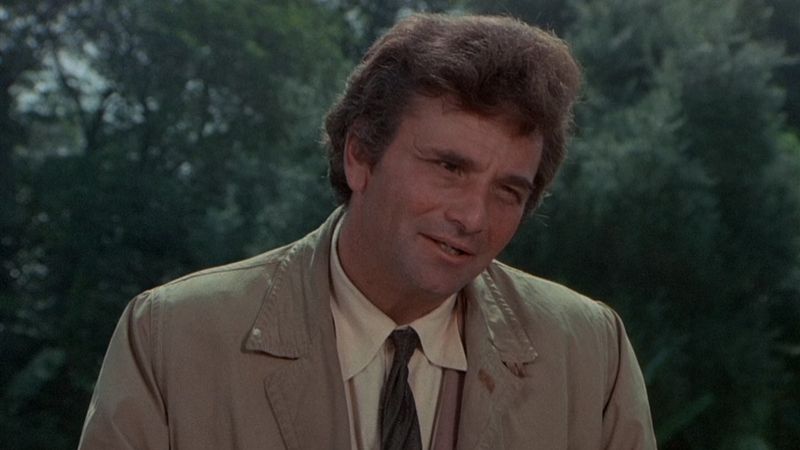

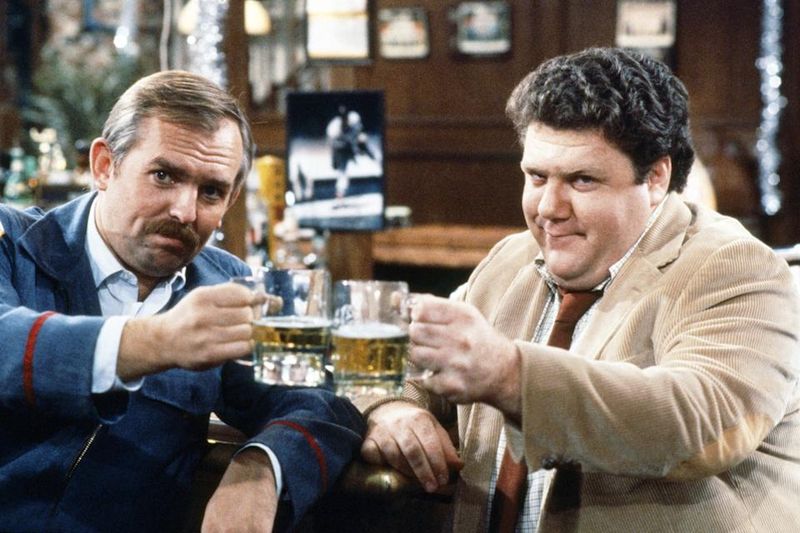





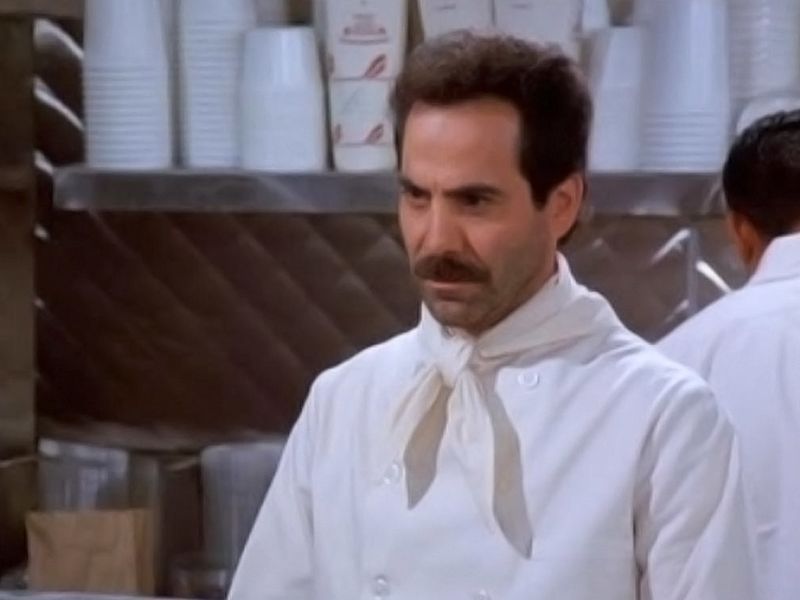

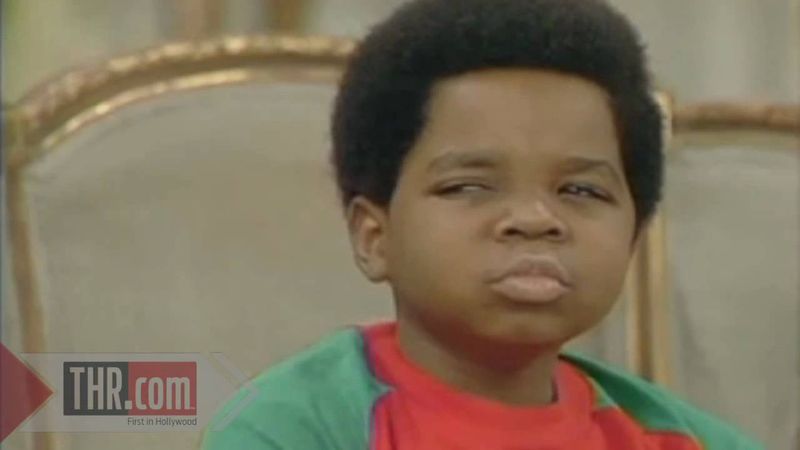



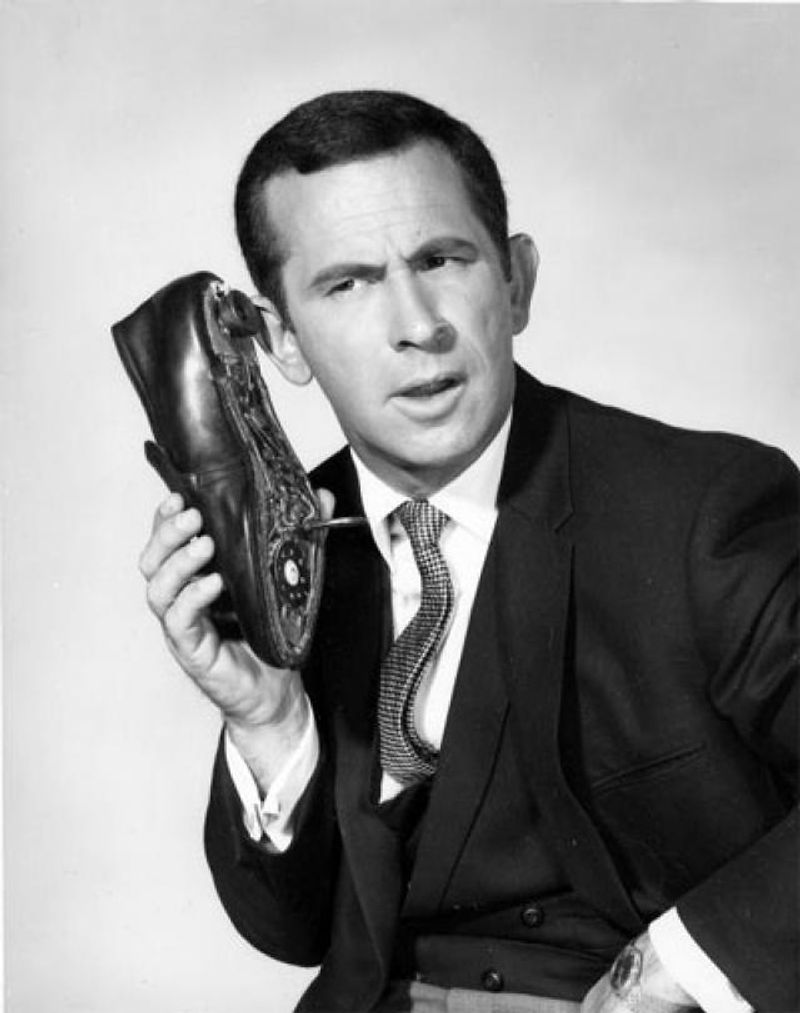
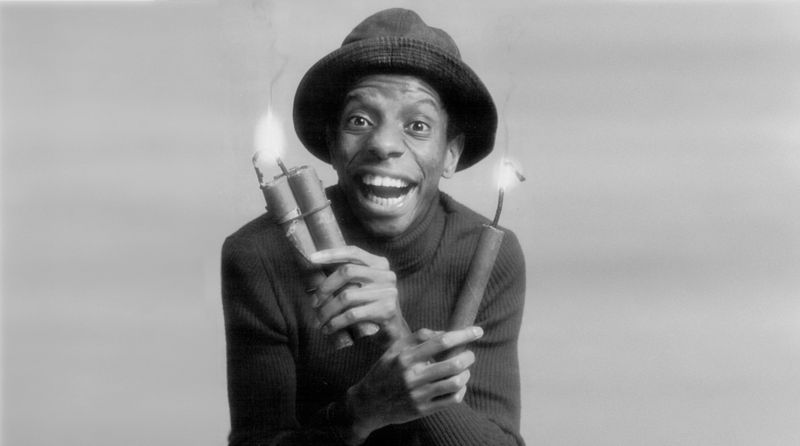
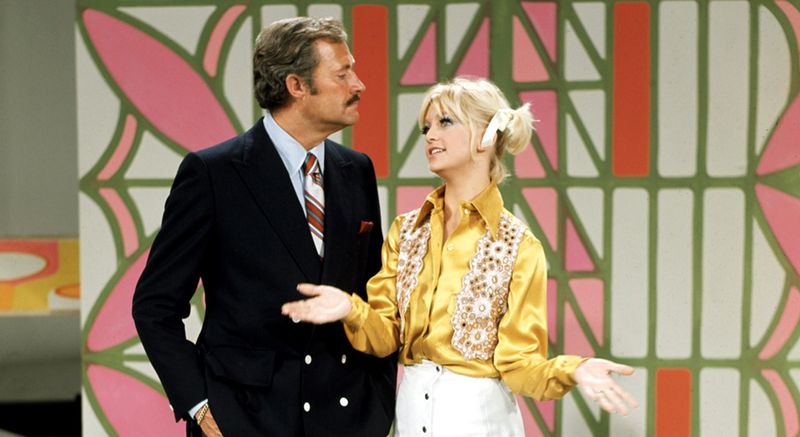
![Holy [anything], Batman!](https://backintimetoday.com/wp-content/uploads/2025/06/Sock-it-to-me.jpg)

